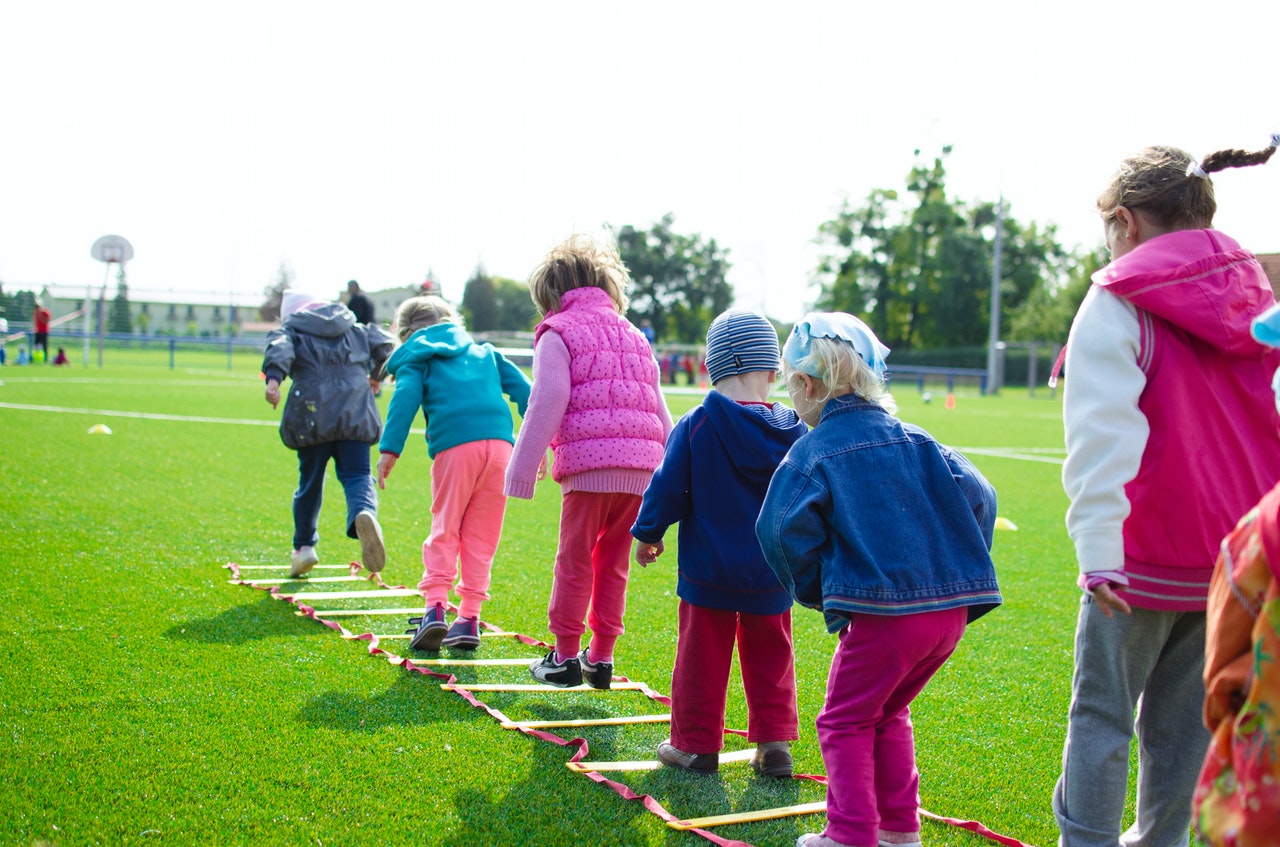Young Kids are Not Just Playing – They’re Learning!

Most of us would agree that kids learn through play. Kids learn optimally when they are involved in hands-on activities with materials and people of their choice. If kids are learning through play, shouldn’t we be teaching through play? What should we be doing and saying to teach through play?
Let’s begin with some definitions. When you think of the word educator, what picture comes to mind? Do you see someone like Miss Smith, who always had a special activity for their 2nd graders on Friday afternoons? Do you visualize a person like Mrs. Lynch, who assigned seatwork while working with reading groups? Maybe you picture Ms. Johnson, the coolest teacher in fifth grade because they went bungee jumping during summer vacation! Maybe you remember a favorite teacher from kindergarten or band or senior English. All of these are educators using their individual styles and talents to teach.
What, then, is teaching? Is it providing knowledge? Is it delivering instruction? The right answer to these questions is, “Yes.” The common element among the educators described above seems to be helping others learn. A good teacher knows and uses different teaching strategies for different skills and concepts and for different students. Teaching that helps learn through play should be 1 of our most essential strategies for young and older kids in out-of-school settings.
Teaching via play is a combination of teacher-assisted and kid-initiated learning opportunities. The adult’s role changes at different points in the play and learning processes. To be successful in instruction through play, we must understand kid development of the expected sequence for learning. The adult must know as much as possible about each individual kid to facilitate learning and play.
The teaching elements through play can be organized into 3 actions: observe, interpret, and respond. We can develop skills in each of the 3 actions that will enhance our teaching ability through play.
Observe the play
Use observation to get to know kids. Notice what and with whom the kid chooses to play, how the kid responds to different people and situations, the kid’s prior knowledge of the play scenario, apparent misconceptions, and emerging skills. Remember that listening to the kid is an essential part of observing.
Use observation to gain insight into behavior. Where and when did the behavior happen? Who was present? What was happening in the environment? What happened before this behavior occurred? What did the kid seem to be feeling, needing, or intending?
Use observation to assess development over some time. Tools such as educator’s notes, photographs, and checklists document kids’ progress toward learning goals.
Use observation to solve problems. Is there conflict in the dramatic play center? Are kids reluctant to clean up? Focused observations can provide useful info on how to resolve these problems.
Decipher the play
Use several observations to help you identify kids’ interests and needs. What seems to stand out? Observe over some time, at different times of the day.
Several observations can spotlight evidence of skills that are emerging or mastered and concepts the kid is exploring. After reviewing several observations, a picture of the kid’s progress begins to emerge. Compare the kid’s overall performance to standards, such as benchmarks or performance indicators.
Identify areas in which instruction might support the kid’s learning. Does the kid need to acquire skills or competencies that would enable more successful play and effective learning? Could these skills and competencies best be gained through teacher-assisted instruction?
Summarize how the kid interacts with others. Through play, kids demonstrate their preferences and competencies in the social and emotional areas. Effective observations allow you to create a summary of the kid’s ability and approaches.
Identify particular times that seem to be challenging for a kid or for the group. Careful observation can provide info to guide you in making adjustments to reduce or eliminate problems.
Be reactive to the play
Good observations and interpretations lead to appropriate responses. Often your response will be an immediate comment, question, or added prop. Your response happens later as you make changes to or the curriculum.
Adjusting the environment. This may mean rearranging furniture or adding or removing equipment. What might make it easier for kids to engage in meaningful play?
Remove or add materials. Consider the level of task, the number of pieces, the interest demonstrated by the kids. What can we enrich the play? How can we support new directions for the play?
Make a comment or ask a question. An adult’s well-timed comments and questions help kids sustain their play and gain new meaning. Avoid quizzing kids and interrupting the flow of their work. Appropriate open-ended questions and feedback can support the kid’s thinking and guide them toward satisfying solutions.
Focus on the process. Ask questions that help extend the kid’s play. “That is a noisy truck. What is it honking at?”*
Support problem-solving. Help kids define the problem and learn negotiation skills. Encourage them to think about alternatives. Suppose 1 kid has grabbed a marker from another kid, who then cries. The adult might say, “Is there a problem here? Can each of you tell me what just happened?” If the kids are too young and lack verbal abilities, the adult can say, “It looks like you both need that marker. Next time, you can tell Matt, ‘That’s mine!'” The adult then offers another marker.
Often the best response is to continue observing and interpreting. Adults usually intervene at the wrong time, short-circuiting the kid’s learning process. Literally, think twice before commenting or questioning. If the kids are safe, it may be better to be patient. Continue observing their approaches to resolving the problem.
What did we miss?






